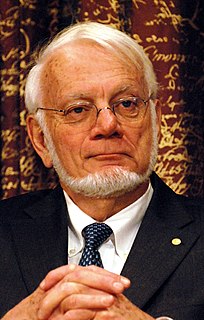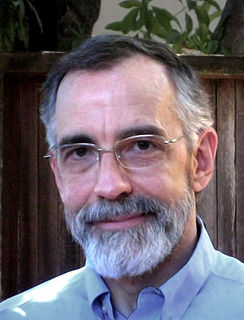A Quote by Bonnie Bassler
When antibiotics first came out, nobody could have imagined we'd have the resistance problem we face today. We didn't give bacteria credit for being able to change and adapt so fast.
Related Quotes
Antibiotics are a very serious public health problem for us, and it's getting worse. Resistant microbes outstrip new antibiotics. It's an ongoing problem. It's not like we can fix it, and it's over. We have to fight continued resistance with a continual pipeline of new antibiotics and continue with the perpetual challenge.
Take pandemics. There could easily be a severe pandemic. A lot of that comes from something we don't pay much attention to: Eating meat. The meat production industry, the industrial production of meat, uses an immense amount of antibiotics.We're now running out of antibiotics that deal with the threat of rapidly mutating bacteria. A lot of that just comes from the meat production industry. Well, do we worry about it? Well, we ought to be.
Plants with leaves no more efficient than today's solar cells could out-compete real plants, crowding the biosphere with an inedible foliage. Tough omnivorous bacteria could out-compete real bacteria: They could spread like blowing pollen, replicate swiftly, and reduce the biosphere to dust in a matter of days. Dangerous replicators could easily be too tough, small, and rapidly spreading to stop - at least if we make no preparation. We have trouble enough controlling viruses and fruit flies.
The problem of dealing with the financial industry is being addressed today. You can measure it with interest rates coming down. You can measure it with the quantity of loans, and that sort of thing. The problem is, that nobody wants to take the loans. Once the banks are willing to give it, that's only half the problem.
Anytime we think the problem is 'out there,' that thought is the problem. We empower what's out there to control us. The change paradigm is 'outside-in' - what's out there has to change before we can change. The proactive approach is to change from the 'inside-out': to be different, and by being different, to effect positive change in what's out there - I can be more resourceful, I can be more diligent, I can be more creative, I can be more cooperative.
Because we humans are big and clever enough to produce and utilize antibiotics and disinfectants, it is easy to convince ourselves that we have banished bacteria to the fringes of existence. Don't you believe it. Bacteria may not build cities or have interesting social lives, but they will be here when the Sun explodes. This is their planet, and we are on it only because they allow us to be.


































